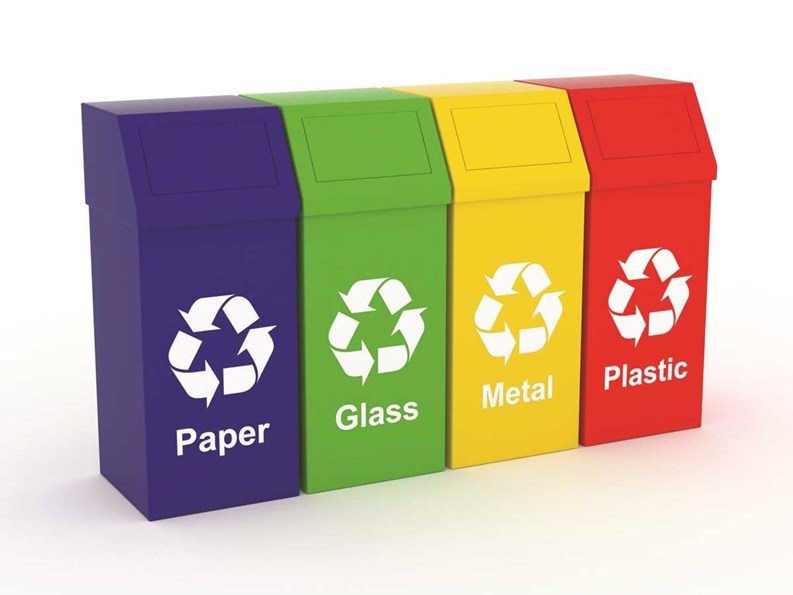Don’t Get Trashed
In the last few years, the recycling industry has seen new technologies and political energy that are creating some of the largest shifts in how people and cities handle their trash in recent memory. Simply recycling glass bottles and newspapers isn't the goal anymore. Garbage hauling has become a greater and greater expense for towns and cities. Citizens are more defensive of their surrounding areas, and don't want landfills made in their respective communities. In South Florida, the availability of new land to be turned into landfill is not as common, thanks in part to the state's population boom in recent decades. Some of South Florida's towns like Deerfield Beach have implemented policies to decrease hauling costs, and follow the lead of other recycling-heavy cities like San Francisco and Toronto, which have introduced a slew of programs that have found ways to cut down how much refuse gets thrown into landfills.
There are essentially two aspects of recycling that are needed: compliance from residents and businesses, and the infrastructure that collects and sorts the materials. Thanks to new technologies, municipalities are adopting several new systems for dealing with recyclables. Traditionally, paper and plastics have always been kept separate in collection, since they are ultimately broken down and re-purposed separately. But, that is changing. “'Single-stream' systems allow all designated recyclables—papers and containers—to be collected together. It has the benefits of making it easier for residents to participate, which is now well-documented, and cheaper to collect,” says Kendall Christensen, senior consultant to InSinkErator, a garbage disposal manufacturer, and former assistant director to New York City's recycling program.
Without the hassle of keeping paper and plastic separate, the whole collection process is simplified, and just as important, it's less work for residents to sort recycling. But there is a downside to the single-stream method. “The improvements in processing technology at recycling centers makes it possible to sort and separate various materials, but not without a slight increase in contamination, which can affect marketability of some materials,” says Christensen.
Glass bottles become especially problematic in single-stream systems because the sorting technology that separates paper from plastic containers uses size to sort them. It crushes up all the recycling, and in the process glass bottles shatter and shards find their way into the paper or plastic piles unintentionally. Single-stream recycling is becoming more common in Florida but not yet to multi-family homes such as condominiums.
Is that yogurt container a 1 or a 5? Florida has set the goal of a statewide 75% recycling rate by 2020, and expanding what plastics and paper materials can be put in the recycling bin plays a large role in getting to that goal. Plastic bags and other flimsy non-rigid still cannot be handled by sorting plants, but more and more recycling facilities are starting to be able to take in more materials and sort them accordingly. “Adding mixed plastics to recycling programs eliminates confusion and encourages diversion. Markets are still figuring out how to sort and use all of those materials, with some promising new technologies like converting plastics back to oil,” says Christensen.
Processing Your Trash
As many ethical reasons as there are to recycle, the value of that paper and plastic after it's been sorted and processed, plays a significant role in costs to cities and hauling companies. “Commodity prices do fluctuate, so there are challenging times when commodity prices fluctuate, and making sure that recyclables don't become contaminated with other waste or food waste,” says Dawn McCormick, manager of community affairs for Waste Management Inc. of Florida, which is based in Pompano Beach. Paper that's soiled with food or plastic containers still lined with juice or yogurt can ruin the reuse of materials when they're being processed.
“We're always challenged to educate our residential and commercial customers to make sure they're only putting recyclables into their containers and make sure they're not contaminated,” says McCormick.
There's also only so much plastic and paper to recycle. If cities and surrounding municipalities are to cut down more substantially on the trash they send to landfills, the next big contributor is food waste. “As much as 30 percent of apartment-building waste is a combination of food scraps and other compostable materials, making it the next holy grail for waste management professionals,” says Christensen. “Some cities are allowing food scraps to be mixed with yard waste for truck-based collection and delivery to composting facilities, which are being pushed further away from cities to manage odors.”
In the last ten years or so, composting has become more common among the more environmentally-minded Floridians. Some have decreased their organic waste themselves with their own compost bins if they have a backyard, or they pay someone to come and pick up their food waste for composting. But those options can be quite difficult for most co-op and condo residents for obvious reasons. If you don't have your own private backyard, you don't have the right to set up shop outside. And even if a whole building was composting their food waste outside, the rotting smell would likely bother unit owners who lived close by.
Not Universally Required
Unlike many states, though, recycling is not mandatory in the Sunshine State. “There’s not a statewide mandate for recycling in the state of Florida,” says Lauren McCarthy, former executive director of the Florida Recycling Partnership. “It is done on a county and municipal basis; it’s a very convoluted system.”
While in 2006 Florida’s 67 counties had a total of 8,567,931 tons of municipal solid waste deposited in landfills through recycling, in 2009 Miami-Dade, Broward and Palm Beach had 2,363,408 tons of combusted garbage and 1,798,045 tons of recycled materials. These numbers are expected to grow exponentially with growing population rates.
In an effort to offset these increases, Florida has taken significant measures to increase its recycling program. This was best underscored by the passage of The Energy, Climate Change and Economic Security Act of 2008. The purpose was to establish a new statewide recycling goal of 75 percent to be achieved by the year 2020.
So, rates of recycling in Florida vary a lot city-by-city. But, states that are seeing greater population growth like Florida tend to have worse recycling rates, in large part to the lack of material recycled in construction projects. The magic number for recycling advocates is called the diversion rate. The diversion rate is the percentage of all disposable material a city or municipality produces—which includes recyclable materials, organic refuse, and regular old trash—that doesn't end up in a landfill or incinerator. San Francisco is leaving every other American city in the dust. As of today, the other city by the bay boasts an 80% diversion rate, and has plans to improve on that. “I would say that the cities that are at the leading edge of waste reduction, recycling, and composting, have zero waste planning and zero waste goals. Often when people hear 'zero waste;' we're not going to get to zero waste. It's really a policy framework, you know if you're not for zero waste, how much are you for? Along the same lines of a manufacturer with a goal of zero defects in their products,” says Brenda Platt, co-director of the Institute for Local Self-Reliance, a think tank based in Washington, D.C.
The Seventy Five Percent Dilemma
Florida's pledge to have a 75% recycling rate by 2020 is a very bold initiative for an entire state, especially one as big as Florida. Recycling three-quarters of all recyclable material will not get you close to zero waste, but initiatives that ambitious have only been taken up by cities, not an entire state. Getting less dense rural areas to comply could make Florida one of the most recycling-heavy states in the United States.
Even in the more successful recycling cities like San Francisco, one of the most difficult factors to manage is making it easier for multi-family buildings, including co-ops and condos, to recycle. Large buildings have chutes for garbage collection, but rarely for recycling. “In [some] communities I've been to, they have the garbage chute, but if you want to recycle if you have to walk it across to the bins on the other side of the parking lot, and you'll get 10% to 20% of the residents doing that. To be successful to get high recycling levels, it has to be as convenient as trash,” says Platt.
Recycling is rarely as easy as garbage in a bigger building, especially when you have to hire your own hauler. The vast majority of Florida does not offer recycling services to multi-family dwellings, nor do they even require them by law to recycle at all. But, they obviously do need to find private haulers for their trash. “They are treated as commercial accounts, multi-family, so they do need to have their own separate contracts for recycling. There's no mandated recycling in Florida. But, each municipality has their own guidelines and ordinances. There are a few areas that have ordinances that mandate commercial recycling. That's in certain areas, but not statewide,” says McCormick.
Go for the Green
Getting recycling in the contract is common, but not made easy, since it's treated separately from trash services. That said, communities can still do their best to leverage the amount of recycling they do to lower the costs of trash collection, assuming they're able to generate less trash. “The contract is separate, and with our customers, we try to work with them, to right size, which means if they introduce and then increase recycling, their waste collection will go down, so we try to show them where recycling may be a cost, we can right size it as residents recycle more and more,” says McCormick. Generally, suburban communities do not have the political groundswell to initiate such green initiatives, but it's not impossible if a community is so motivated. “A lot the major haulers like Waste Management are becoming full service providers. Even if your contract renewal isn't up yet, you can still negotiate something. It's in their interest to do it because once their contract comes up in can go out to an open bid,” says Platt.
Unfortunately, multi-unit communities such as condos and co-ops face several obstacles that prevent them from being on the leading edge of modern recycling practices. That said, a green-minded board and community can always find ways to swim against the current and make their own diversion rates higher, or lobby for more inclusive recycling practices that are found in other urban areas.
Tom Lisi is an editorial assistant at The South Florida Cooperator.





Leave a Comment